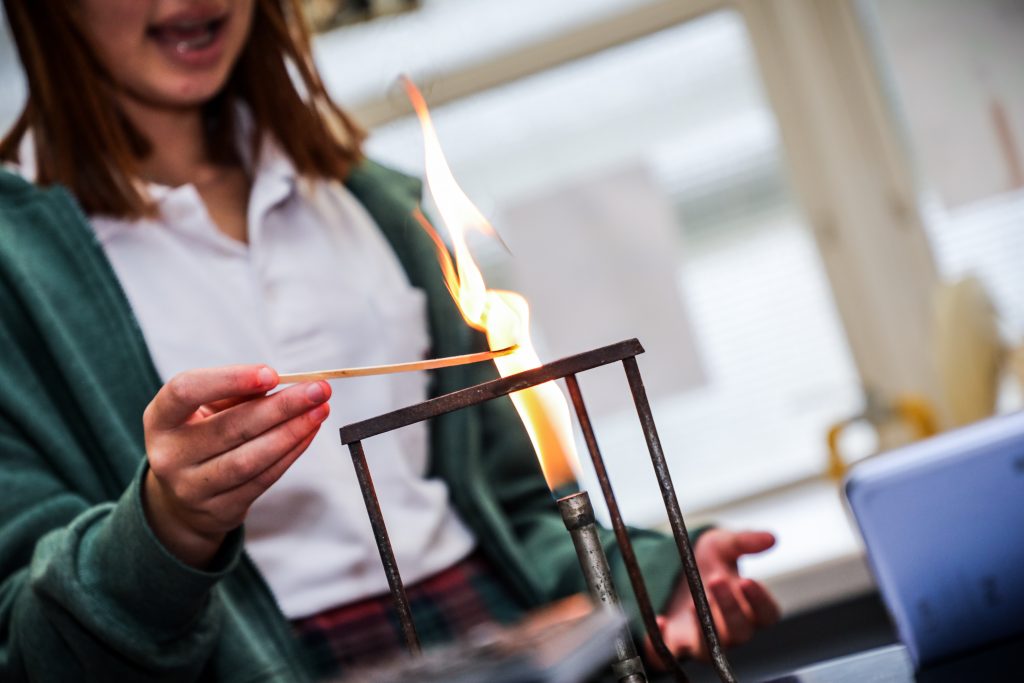
KS3 starts in Year 7 and ends in the Christmas term in Year 9. Below shows the topics we cover in KS3 Physics. |
| Forces – Speed & Gravity |
| Electromagnets – Voltage, Resistance & Current |
| Energy – Energy costs & Energy Transfer |
| Waves – Sound & Light |
| Forces – Contact forces & Pressure |
| Electromagnets – Magnetism & Electromagnetism |
| Energy – Work, Heating & Cooling |
| Waves – Wave effects & Wave properties |
Homework:Learners are set a variety of homework that is designed to reinforce what they have learned in the current teaching topic, usually a thinking homework where they need to research and have an answer for next lesson. These will also encompass other areas of the curriculum, such as supporting Literacy and Numeracy, as well as encouraging independent research and revision. |
| Assessment:
At the end of each unit the students are guided in their revision and then sit an end of topic assessment which is matched to each students learning pathway at KS3. At the end of year (June) they will sit formal exam, which are used to assess their progress. |
| How to help:
Parents, carers and other family members can find fabulous information that will both enrich and support the students at the following: |
Key Stage 4 (Y9-11)
In Physics we are following the AQA Specification for Trilogy (2 x GCSEs) & Separate Science (3 x GCSEs). Below are the topics we cover over 2 years. |
Physics
|
Homework:Learners are set a variety of homework that is designed to reinforce what they have learned in the current teaching topic, usually a thinking homework where they need to research and have an answer for next lesson. These will also encompass other areas of the curriculum, such as supporting Literacy and Numeracy, as well as encouraging independent research and revision. |
| Assessment:
At the end of each unit the students are guided in their revision and then sit an end of topic assessment. At the start of the year (October) and the end of year (June) they will sit formal exams, which are used to assess their progress. |
Year 10
| In Year 10 Physics we are following the AQA Specification for Trilogy (2 x GCSEs) & Separate Science (3 x GCSEs). Below are the topics we cover over 2 years. |
|
1. Energy |
Year 11 |
| In Year 11 Science we follow the AQA Specification of Science A (1xGCSE), Additional Science (1xGCSE) & Separate Sciences (3 x GCSEs). This course is ending from June 2017. The examinations for this course are dependent on routes taken. Science A and Additional Science will have 2 exams each at 1hr 30 mins long and each course has a piece of controlled assessment completed during the school year. Separate sciences of Biology, Chemistry & Physics each will have 3 exams and a piece of controlled assessment for each subject. |
| Homework at GCSE is set using CGP workbooks which we provide the students with. This is usually set every two weeks. |
| Assessments are set for the end of each unit in each course. These are usually past exam questions based on the learning they have been covering. |
| We recommend each student commits extra hours on Science outside of school to help build retention and understanding of key concepts. The students are given textbooks to help with this. |
Feynman Technique Instructions for pupils and parents Science